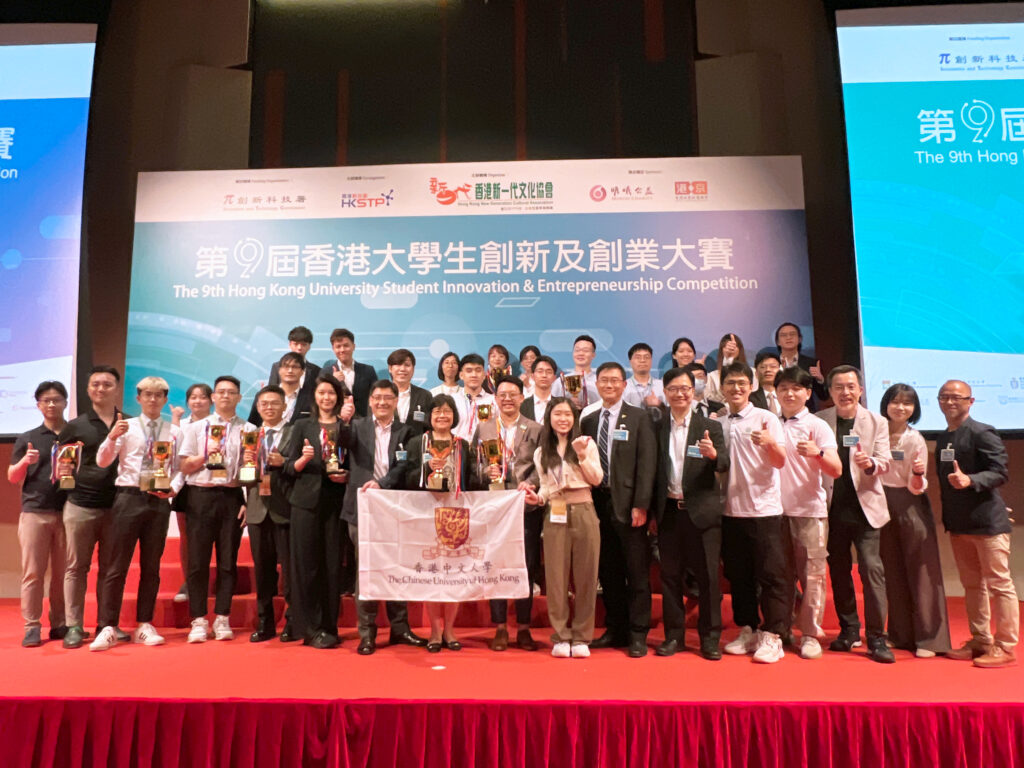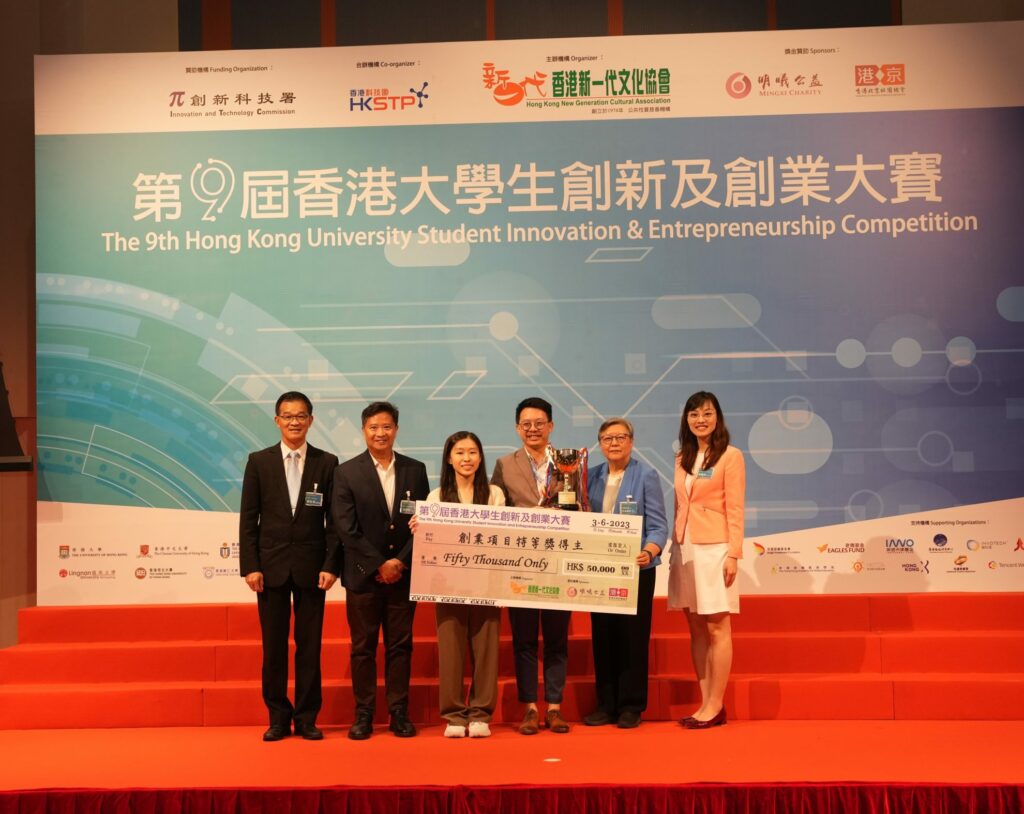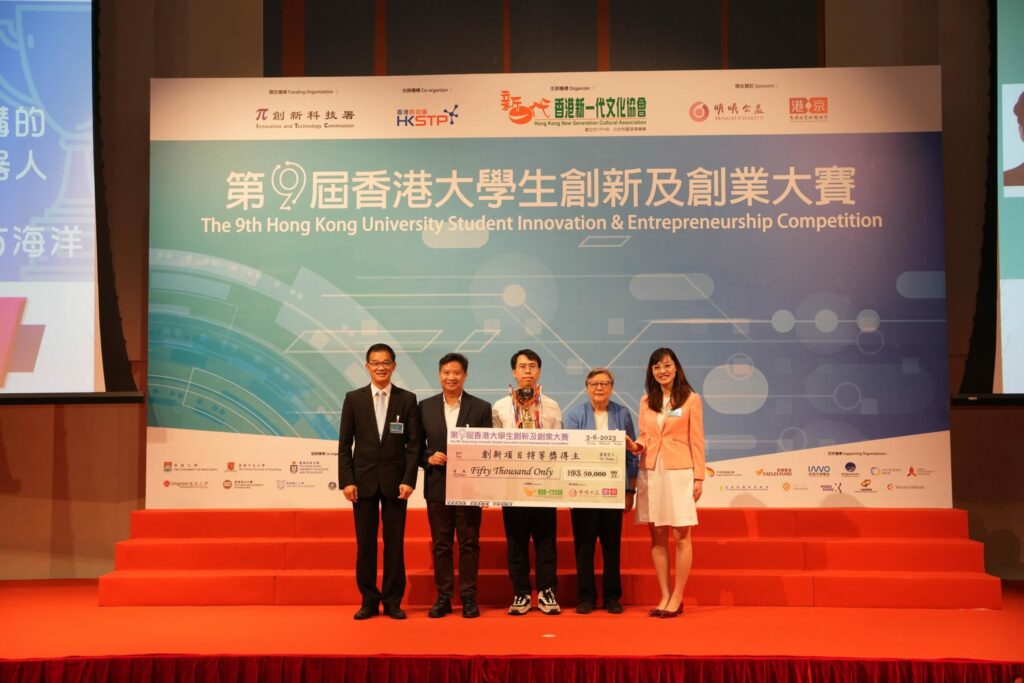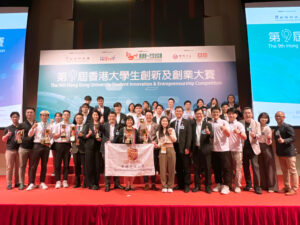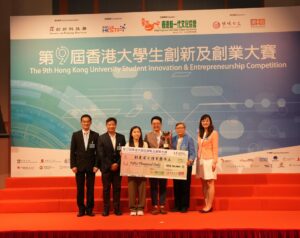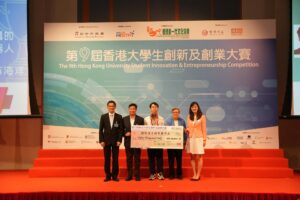CUHK
News Centre
CUHK students win 21 awards at the 9th Hong Kong University Student Innovation and Entrepreneurship Competition
Students from The Chinese University of Hong Kong (CUHK) received a total of 21 awards at the 9th Hong Kong University Student Innovation and Entrepreneurship Competition: one grand prize, three first prizes, five second prizes, three third prizes and four merit prizes in the Innovation category; and one grand prize, one first prize, one third prize and two merit prizes in the Entrepreneurship categories.
Director of CUHK’s Office of Research and Knowledge Transfer Services Professor Benny Zee said, “The University puts great emphasis on cultivating young researchers in innovation and entrepreneurship. Students are encouraged to transform their research results into projects that contribute to society through the Hong Kong University Student Innovation and Entrepreneurship Competition, which is beneficial to their growth. I hope all teams will continue to work hard in national competitions.”
Innovation grand prize and first prize: A MR Safe RCM Constrained Robotic Needle with Bellow-based Hydraulic Actuators for Spine Procedures
Metal and electrical materials affect the Magnetic Resonance Imaging (MRI) process, which makes conventional robotic systems unusable. Under the supervision of Professor Cheng Shing-shin, Qiu Yufu and his team members Yan Junyan, Chen Jibiao and Fang Haiyang from the Department of Mechanical and Automation Engineering have countered that with the MRI-safe robotic system using a bellows-based hydraulic actuator that they have developed, which does not contain any metal or electronic components in the MRI chamber. The system has a 2-DOF (two-degree-of-freedom) RCM (remote centre-of-motion) mechanism and a 1-DOF needle insertion device, which can be fixed on the patient’s back and placed in the MRI scanner to perform various percutaneous interventional spine procedures with real-time image guidance. Equipment outside the MRI chamber drives the robot, providing pressure that expands and contracts the bellows.
Innovation first prize: From Microbes to Meals: the potential of bacterial cellulose as sustainable food packaging
Petroleum-based plastic packaging has caused numerous ecological problems. Bacterial cellulose (BC) is a promising alternative to plastic since it is sustainable, biodegradable and easy to process. Nevertheless, the high costs and water-absorbing properties of BC packaging have limited its adoption. Jiang Zhuolun, Cheung Ka-man and Chong Hio-lam from the Department of Chemistry successfully developed kombucha BC-based films using simple chemical modification strategies. These films have barriers that block water and oil, which makes them suitable for food packaging. In addition, they easily degrade in soil, providing a sustainable alternative to traditional plastic packaging.
Innovation first prize: Site-selective Antibody Modification and its Application
Antibodies target and neutralise foreign substances such as viruses and bacteria. Due to their outstanding ability to bind to specific antigens or epitopes, antibodies are emerging as effective therapeutics against a variety of diseases. Antibody modification is therefore becoming increasingly important. Traditional antibody modification is based on antibody engineering, which has several disadvantages, such as high cost and difficulty in modularisation, so chemical modification of antibodies is preferable. Inspired by enzymatic reactions, Yuan Dingdong, Chen Hongfei and Li Biquan from the Department of Chemistry designed two novel antibody modification methods: site-selective lysine modification for antibodies based on the peptide antibody interaction, and chemoenzymatic photoaddition for site-selective tyrosine reaction. They also used these two methods to synthesise antibody-related drugs – bispecific antibody conjugates, immunoliposomes and antibody-drug conjugates – that can play an important role in immunotherapy.
Entrepreneurship grand prize and first prize: Meat the Next Tiger Nut Enzymatic Reaction Technology
Tiger nuts are an environmentally sustainable food source that grow in the desert and come with numerous health benefits. Executive Master of Business Administration student Chan Ka-ming and his partners from Meat the Next, a new-generation food enabler that aims to change diets and improve the ability of younger generations to deal with climate change and alleviate the food crisis, has developed enzyme technology that it uses to produce non-dairy products, including tiger nut milk and tiger nut ice-cream. Thanks to the enzyme technology, the non-dairy milks contain higher protein levels, and boast a desirable smooth texture. The target market is huge and there are no major competitors – a market opportunity that is expected to lead to year-on-year growth of more than 20%.
The competition was organised by the Hong Kong New General Cultural Association, and the winners will represent Hong Kong in two nationwide competitions. Winning projects in the Innovation category will take part in the “Challenge Cup” National College Students’ Extracurricular Academic Science and Technology Contest, while winning Entrepreneurship projects will be entered in the China International College Students’ “Internet+” Innovation and Entrepreneurship Competition and/or the “Challenge Cup” (Chuang Qing Chun) China College Students Entrepreneurship Competition.


